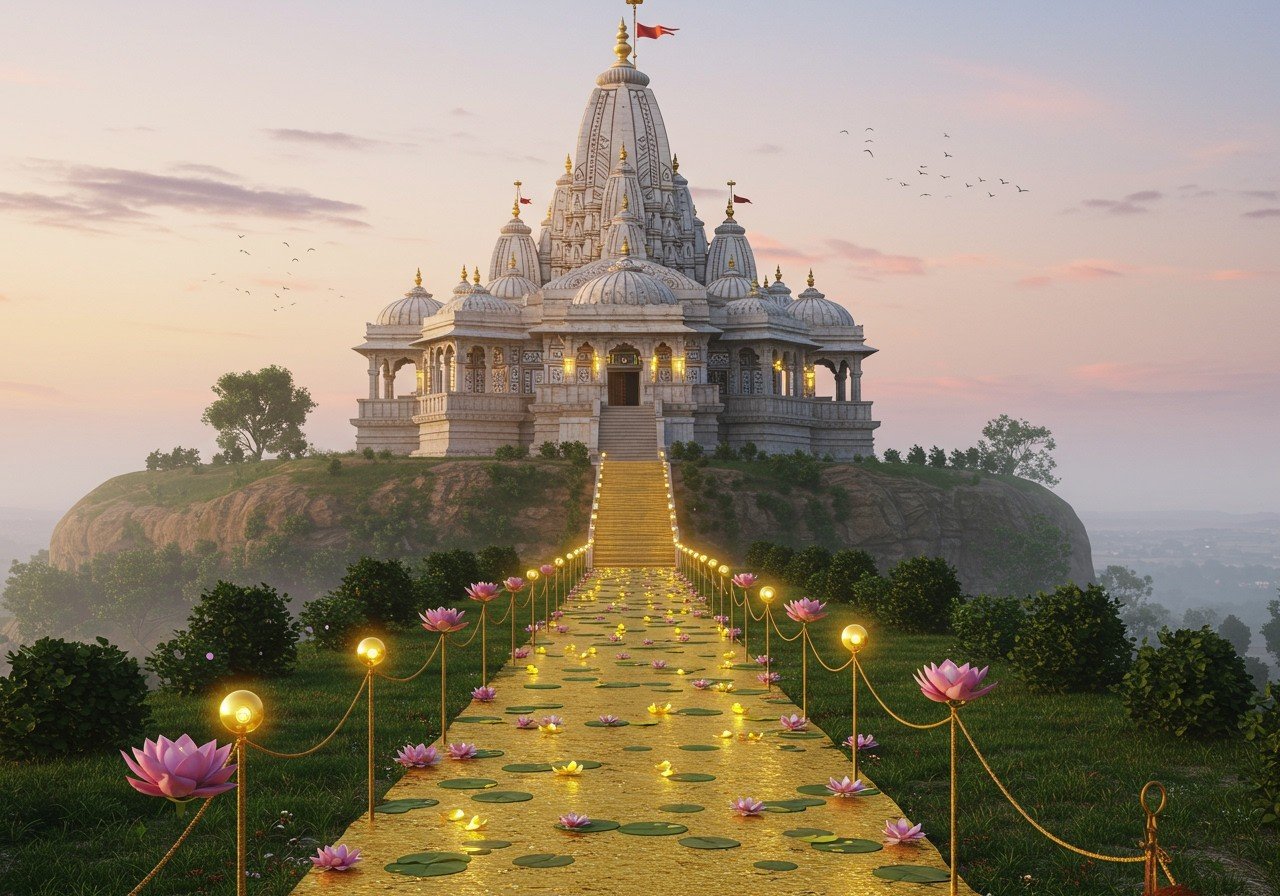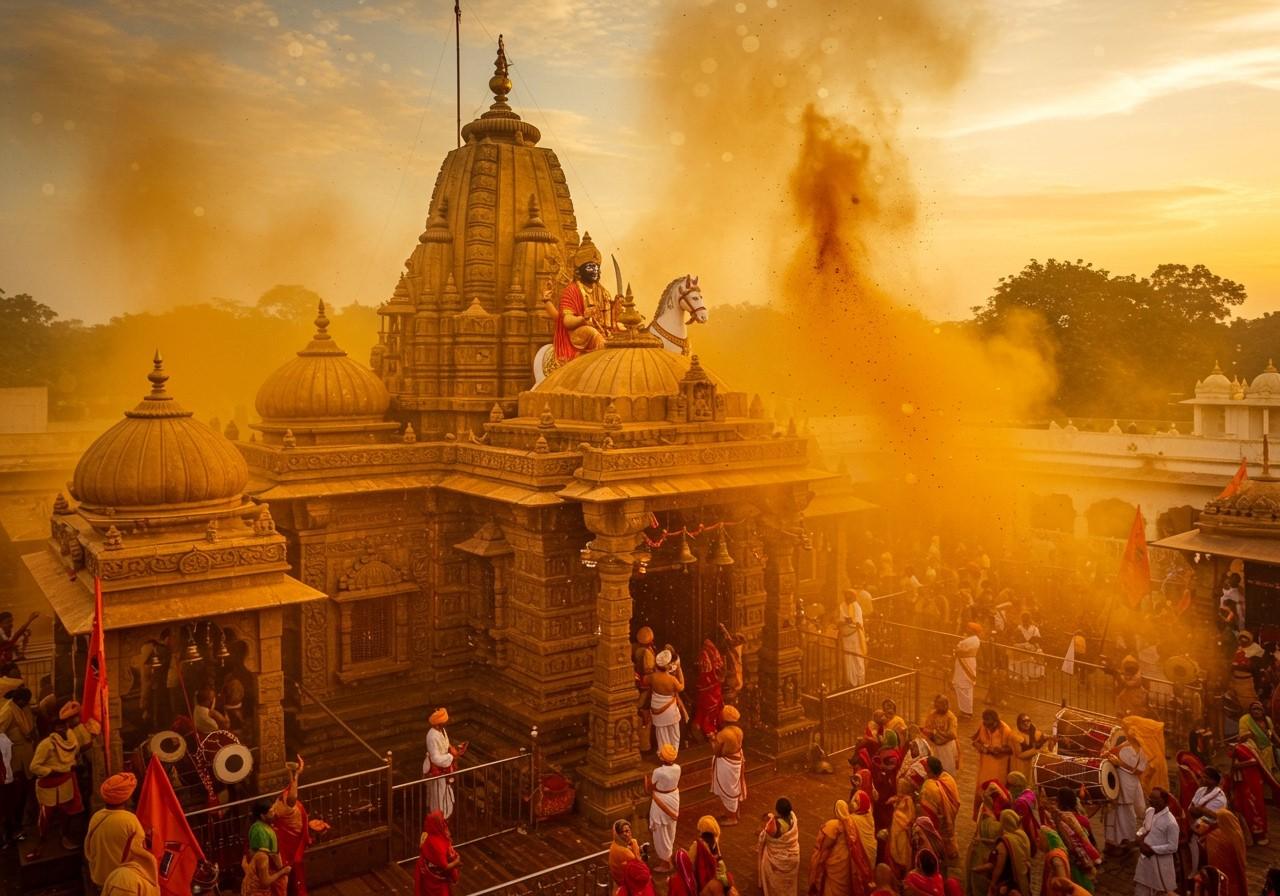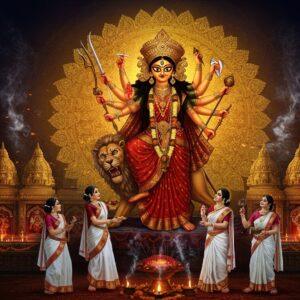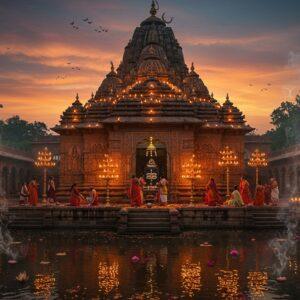
There are some places in India that are more than just destinations on a map. They are a feeling, a vibration that connects us to our roots, our faith, and our history. Jejuri, in Maharashtra, is one such sacred town. It’s the home of the fierce and beloved warrior god, Khandoba. But what does this town feel like to a visitor? What happens when a modern mind walks through its ancient lanes? This is the journey that the celebrated poet Arun Kolatkar takes us on in his award-winning collection of poems, “Jejuri”.
Let’s walk through this poetic landscape together and understand why this place, and these poems, hold such a special place in the heart of Indian culture.

Arun Kolatkar’s “Jejuri”: Not Just a Poem, but an Experience
In 1976, Arun Kolatkar published a series of 31 simple yet profound poems about his visit to Jejuri. This collection was so honest and powerful that it won the Commonwealth Poetry Prize in 1977. Kolatkar wasn’t writing as a devout pilgrim, but as an observer, a modern man trying to make sense of the deep faith he saw around him. His poetry is a conversation between faith and doubt, between the ancient and the modern.
This unique perspective is what makes the collection so special. It doesn’t preach; it simply shows. It allows us, the readers, to feel the dust of Jejuri’s streets and ponder the meaning of its traditions for ourselves.
A Journey of Belief and Questioning
One of the most beautiful things about our culture is that it has space for both unwavering faith and honest questions. Kolatkar’s poems capture this perfectly. The narrator in the poems looks at the rituals, the crumbling temple stones, and the earnest devotees with a gentle skepticism. He questions things, but he never disrespects the faith of the people.
This is a journey that many of us can relate to. We might follow traditions passed down through generations, yet have our own quiet questions. The poems show how the sacred and the worldly are always intertwined in our spiritual lives, creating a beautiful, complex tapestry of belief.
The Sights and Sounds of Khandoba’s Town
Kolatkar uses simple, everyday language to paint a vivid picture of Jejuri. Through his words, you can almost see the town come alive. He doesn’t just describe the main temple; he focuses on the small details that make the place real.
- The Ancient and the Ruined: The poems often talk about the decaying structures and ruins. This isn’t a sad thing; instead, it’s a powerful reminder of time passing by. It highlights the theme of impermanence, showing that while buildings may crumble, the faith within them endures through generations.
- Life in Every Corner: Kolatkar’s eye catches everything—the crowded streets, the commercial stalls selling pooja items, the legends of the gods, and the simple lives of the priests and vendors. He shows that Jejuri is not just a holy place, but a living, breathing town where divinity and daily life dance together. It is this celebration of life, in all its forms, that makes his work so touching.
At the Heart of It All: The Protector God Khandoba
You cannot speak of Jejuri without honouring its reigning deity, Lord Khandoba. He is a form of Shiva, revered as a protector god who blesses his devotees with health and prosperity. What’s truly wonderful is that Khandoba is worshipped by people from all castes and communities across Maharashtra, making his temple a true symbol of unity in faith.
The pilgrimage to Jejuri is a journey to seek his blessings, and this devotion forms the spiritual backbone of Kolatkar’s poetic exploration.
Bringing a Piece of Tradition Home
When we visit a holy place, the experience stays with us. We often bring back prasad or a sacred item as a reminder of the divine connection we felt. The traditions in Jejuri, like in many sacred Indian towns, are simple and heartfelt. An offering can be as humble as a flower or a piece of something sweet, made with pure devotion.
Speaking of sweet offerings, many rituals involve traditional sweets that have been part of our culture for centuries. For instance, Gur Batasha (Jaggery Patasha) is not just a sweet but a symbol of abundance and nostalgia, especially during festivals like Lakshmi Puja. If you’re looking to bring such authentic items into your own pooja rituals, you can find them with ease. At poojn.in, we ensure you get all the authentic pooja samagri you need, delivered right to your doorstep.
Jejuri’s Poetic Soul: Understanding the Deeper Meaning
Many people read Kolatkar’s work and wonder what makes these simple poems so timeless. The main theme is this beautiful dance between faith and modern skepticism. It captures the essence of a spiritual journey where the destination is not just a temple, but a deeper understanding of oneself and one’s place in the vast ocean of tradition.
The reason these poems are still so relevant today is that they address universal human feelings. They speak to anyone who has ever marvelled at ancient traditions and wondered about their meaning in today’s fast-paced world. The poetry isn’t just about a place; it’s about a state of mind. It’s a quiet reminder that spirituality isn’t always about grand pronouncements; sometimes, it’s found in the small, observed details of life. You can explore more such profound thoughts in various holy books that guide our spiritual paths.
Kolatkar’s work is unique because it offers a secular, yet deeply respectful, view of a holy place. It finds poetry in the ordinary and divinity in the everyday, giving us a window into the true, unfiltered soul of Jejuri.
A Journey That Stays With You
Arun Kolatkar’s Jejuri is more than a book; it’s an invitation. It invites us to look at our own traditions with fresh eyes, to appreciate the beauty in both faith and doubt, and to find the poetry hidden in our own spiritual journeys. It reminds us that a pilgrimage is as much about the inner journey as it is about the outer one. Whether you have been to Jejuri or not, these poems can transport you there, leaving you with a sense of peace, wonder, and a deeper connection to our incredible cultural heritage.


